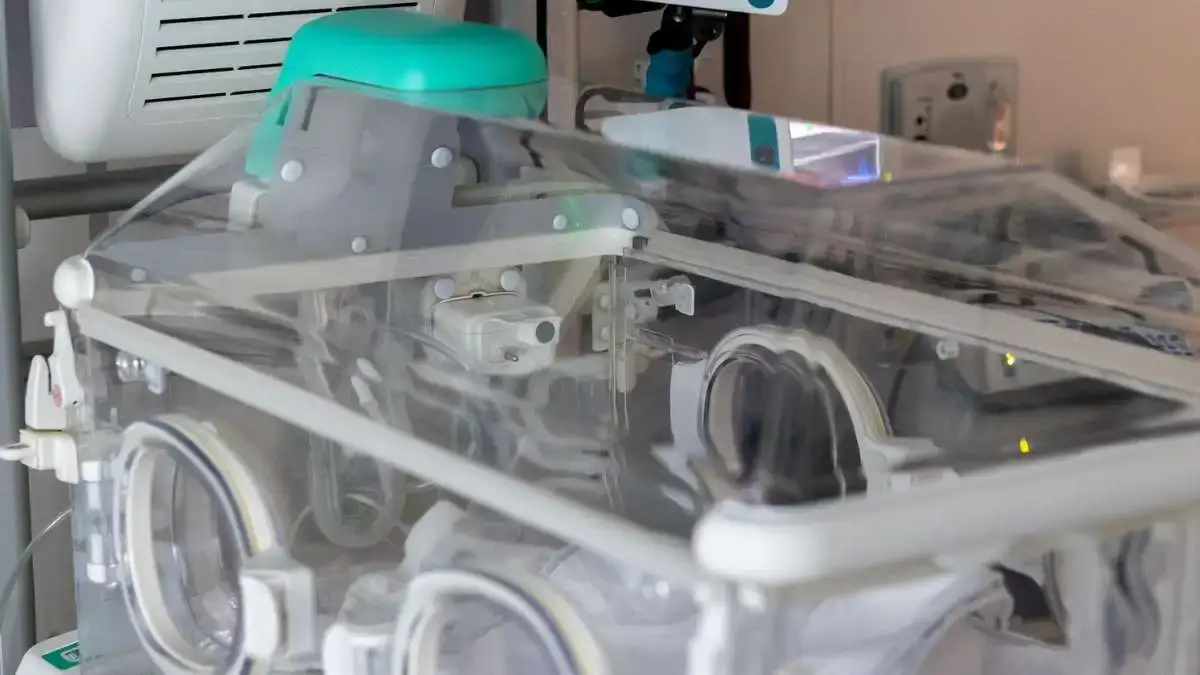HEALTH AND FITNESS
How Neonatal Nurses Support Families in the NICU

The Neonatal Intensive Care Unit (NICU) is a place where tiny lives hang in the balance and where miracles happen daily. For many parents, having a newborn admitted to the NICU can be an overwhelming and emotional experience.
The journey through the NICU is filled with challenges, but families are not alone. Neonatal nurses are the backbone of the NICU, offering not only medical expertise but also emotional support, education, and hope to families during their most vulnerable moments. Here’s how they can help new parents.
Table of Contents
1. Keeping Families Informed with Regular Updates
In the NICU, information is power. Parents often feel helpless and disconnected from their baby’s care, which can exacerbate stress and anxiety. Neonatal nurses play a crucial role in bridging this gap by providing regular updates on the baby’s condition. They take the time to explain complex medical terms in simple language, ensuring parents understand the situation and the care being provided. This transparency helps build trust and empowers parents to be active participants in their baby’s care, fostering a sense of control and involvement.
2. Emotional Support and Counseling
One of the most vital roles neonatal nurses play is providing emotional support and counseling to parents. The NICU can be an intimidating place filled with beeping machines, medical jargon, and uncertainty. Neonatal nurses are trained to offer a comforting presence, helping parents navigate their fears and anxieties. They listen to parents’ concerns, validate their feelings, and provide a shoulder to lean on. When people become a neonatal nurse, they learn specialized skills in emotional support, recognizing the profound impact their empathy and reassurance can have on a family’s experience. By being there for parents during late-night feedings or unexpected complications, nurses create a support system that is essential for emotional well-being.
3. Teaching Essential Care Skills to Parents
Caring for a premature or ill newborn requires specialized skills that most parents are not initially equipped with. Neonatal nurses step in to teach these essential care skills, helping parents feel more confident and competent. From feeding and bathing to handling medical equipment, nurses provide hands-on training and guidance. This education is crucial for ensuring the baby’s well-being and for preparing parents for the transition home. By empowering parents with the knowledge and skills they need, nurses play a key role in the baby’s recovery and long-term health.
4. Encouraging Family Involvement in Care
Family involvement is a cornerstone of neonatal care. Neonatal nurses actively encourage parents to participate in their baby’s care, fostering a sense of connection and bonding. They promote practices like kangaroo care, which has been shown to improve outcomes for premature infants. Nurses also involve parents in medical decisions, ensuring they are informed and comfortable with the care plan. This involvement not only benefits the baby but also helps parents feel more connected and less isolated during their NICU journey.
5. Providing Resources and Information for Better Preparation
Navigating the NICU can be overwhelming, and having access to reliable resources and information is essential for parents. Neonatal nurses provide a wealth of resources, including pamphlets, support groups, and online forums, to help families understand and cope with their situation. These resources offer valuable information on topics such as breastfeeding, developmental milestones, and post-NICU care. By equipping parents with the right tools and information, nurses help reduce feelings of helplessness and empower families to take an active role in their baby’s care. This support system extends beyond the hospital walls, providing a network of assistance that parents can rely on even after they leave the NICU.
6. Helping Parents Manage Stress and Anxiety
The NICU is an environment filled with high-stress situations, and parents often experience significant anxiety and fear for their baby’s health. Neonatal nurses are adept at recognizing these emotions and implementing strategies to help parents manage their stress. They provide a calming presence and teach parents relaxation techniques, such as deep breathing exercises and mindfulness practices. By offering a supportive and understanding environment, nurses help parents cope with the emotional rollercoaster of the NICU. They also provide practical advice on balancing self-care with their baby’s needs, ensuring parents maintain their mental and physical health during this challenging time.
7. Supporting Siblings Through the NICU Journey
When a newborn is in the NICU, the entire family is affected, including siblings who may feel confused, neglected, or scared. Neonatal nurses understand the importance of supporting the whole family unit and work to involve and comfort siblings as well. They explain the NICU environment and the baby’s condition in an age-appropriate manner, helping siblings understand what is happening. Nurses also encourage parents to spend quality time with their other children and provide suggestions for activities that include the whole family. By addressing the needs of siblings, nurses help foster a supportive and cohesive family environment, easing the stress for everyone involved.
8. Collaborating with Healthcare Professionals for Comprehensive Care
The NICU is a collaborative environment where neonatal nurses work closely with a team of healthcare professionals, including doctors, respiratory therapists, social workers, and nutritionists. This multidisciplinary approach ensures that each baby receives comprehensive care tailored to their specific needs. Nurses play a pivotal role in coordinating this care, communicating with various specialists, and advocating for the baby and family. Their insights and observations are invaluable in developing and adjusting care plans. By working together seamlessly, the healthcare team provides holistic support that addresses both the medical and emotional needs of the baby and family.
9. Preparing Families for the Transition Home
The transition from the NICU to home is a significant milestone that can be both exciting and daunting for parents. Neonatal nurses play a crucial role in preparing families for this change. They provide extensive education on how to care for their baby at home, covering topics such as feeding, medication administration, and recognizing signs of potential complications. Nurses also create detailed care plans and coordinate follow-up appointments with pediatricians and specialists. By ensuring parents feel confident and prepared, nurses help facilitate a smooth transition and reduce the anxiety associated with leaving the NICU.
10. Long-Term Follow-Up and Continued Support
The support provided by neonatal nurses often extends beyond the baby’s discharge from the NICU. Many NICUs offer long-term follow-up programs where nurses continue to monitor the baby’s development and health. These follow-ups are crucial for identifying and addressing any ongoing medical or developmental issues early. Nurses also remain a source of support for parents, offering advice, answering questions, and providing reassurance as families navigate the post-NICU period. This continued support helps families feel connected and ensures that both the baby and parents receive the care and guidance they need for a successful long-term outcome.
Conclusion
Neonatal nurses are the unsung heroes of the NICU, providing a lifeline to families during some of their most challenging times. Their roles extend far beyond medical care, encompassing emotional support, education, and empowerment. By offering a blend of compassion, expertise, and practical assistance, neonatal nurses ensure that families are well-equipped to handle the immediate challenges of the NICU and are prepared for the future. The impact of their work is profound, fostering resilience and hope in the face of adversity. Through their dedication and unwavering support, neonatal nurses help families navigate the NICU journey with strength and confidence, leaving a lasting positive impact on their lives.
-

 GENERAL2 months ago
GENERAL2 months agoUncovering the World of кинокрадко: The Dark Side of Film Piracy
-

 GENERAL1 month ago
GENERAL1 month agoUnveiling the Art of преводсч: How Translators Bridge Language Barriers
-

 YOGA1 year ago
YOGA1 year ago4 Person Yoga Poses for Beginners
-

 GENERAL2 months ago
GENERAL2 months agoThe Journey of iamnobody89757: From Anonymous User to Internet Sensation


























